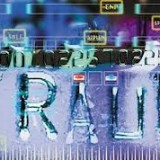It can often seem like there are a bewildering number of things to do in order to stay financially fit. Don’t borrow too much money. Create a budget and stick to it. Save for retirement. Squirrel away money for your children’s education.
Now add this to the list of to do’s required in order to be financially fit: Be clear on what your credit status is. It may seem like something that can be easily relegated to the bottom of your pressing financial concerns, but that notion is misleading. Having good credit, after all, is a prerequisite for qualifying for a mortgage or a car loan or even a credit card. Furthermore, lenders look at your credit – usually your credit score – to determine how risky it is for them to hand money over to you. If you’re deemed a big risk, you either won’t qualify at all or you’ll have to pay a sky-high interest rate.
Sadly, a new survey conducted by the financial services company Capital One found that when it comes to credit, Americans are not nearly as financially fit as they need to be. Indeed, the survey discovered that a great deal of education needs to take place for many of us to improve our financial IQ, at least as it relates to credit. Among Capital One’s findings were:
- About one-third of Americans surveyed believe that a credit score only matters when they need to buy a house. This misconception is particularly pervasive among young Americans. Almost half of those under 35 who were polled believed this to be true.
- The survey also pointed towards widespread confusion about the factors that go into determining a credit score. For example, over a quarter of respondents mistakenly believe that having one late payment on a bill will not damage their credit. Another 24 percent of those polled wrongly believe that age is a factor in a credit score, while 19 percent asserted that where they live is considered.
- Although it’s free and a very smart thing to do only 30 percent of respondents had requested a copy of their credit report in that past year. Doing so allows consumers to check for and correct any errors that may be harming their credit. By contrast, 66 percent of respondents had their car’s oil changed and over half had been to the dentist.
- Despite all of this, the survey also found that 81 percent of parents believed that their kids would have better credit than they do by the time they reach their age.





